GwinnettForum | Number 25.2 | Jan. 7, 2025
TOP PRIZE: Michael MacManus won the top prize in the Norcross Gallery and Studio photo contest of activities going on in Norcross. His title for this photograph was “Santa Comes To Norcross.” Located in downtown Norcross at 116 Carlyle Street, open hours are Thursdays through Saturdays 11 am to 4 pm. The website is www.norcrossgalleryandstudios.org and the phone is 770-840-9844.
TODAY’S FOCUS: Remembering Jimmy Carter, the 39th president
EEB PERSPECTIVE: USA should ban drug advertising on television
SPOTLIGHT: Lail Family Dentistry
ANOTHER VIEW: Bernie Marcus had a tremendous humanitarian spirit
FEEDBACK: Checking out Jupiter with a cell phone camera
UPCOMING: GGC gets $200,000 for women-in-tech boot camp
NOTABLE: Snellville plans hearing on opting out of HB 581
RECOMMENDED: Calamity of Souls, by David Baldacci
GEORGIA TIDBIT: Carter Center seeks to advance peace and health
MYSTERY PHOTO: Where is this train station located?
CALENDAR: Discussion on Jones Bridge Park set for Jan. 8
Remembering Jimmy Carter, the 39th president
By Andy Brack
CHARLESTON, S.C. | Morning, noon and night, state legislators should start asking this big question frequently whenever spending money or making tough decisions: “What would Jimmy Carter do?”
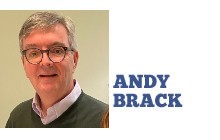 Regardless of political persuasion or moral framework, it’s an impactful question that should make people stop, look and listen as if they were at a public policy railroad crossing. When we saw the question emblazoned on a gray T-shirt in bold, black letters, it certainly caught our attention as a great way to boil down what to do about tough issues.
Regardless of political persuasion or moral framework, it’s an impactful question that should make people stop, look and listen as if they were at a public policy railroad crossing. When we saw the question emblazoned on a gray T-shirt in bold, black letters, it certainly caught our attention as a great way to boil down what to do about tough issues.
In fact, asking what Jimmy Carter would do may be the most relevant question there is as our nation struggles to wade through polarized times. It’s simple, but layered with moral complexities that test choices for decisions that need to be made, policies that should be explored and questions that befuddle.
Carter, the Georgia peanut farmer and Navy nuclear engineer who died Dec. 29 at age 100, set the gold standard of a consequential life well-lived. The 39th president of the United States, Carter left office in 1981 after one term to have a post-presidential influence greater than any past president by infusing his faith and goodness in making people’s lives better around the world.
“I have one life and one chance to make it count for something,” Carter once said. “My faith demands that I do whatever I can, wherever I am, whenever I can, for as long as I can with whatever I have to make a difference.”
Simply put, he and his life partner Rosalynn showed up, time and again, and did work that needed to be done, whether to help to build homes for people who needed them or establish a global organization to promote democratic ideals. The Carter Center and its partners around the world took on the seemingly impossible mission 40 years ago to eradicate the parasitic guinea worm that made life miserable for millions. In the mid-1980s, 3.5 million people in Asia and Africa suffered from the disease’s crippling infection. By 2023, the number of cases throughout the world stood at 14. Yes, 14.
Carter dedicated his presidency and post-presidential life to waging peace, not war, once saying, “War may sometimes be a necessary evil. But no matter how necessary, it is always an evil, never a good. We will not learn how to live together in peace by killing each other’s children. The bond of our common humanity is stronger than the divisiveness of our fears and prejudices.”
In 2002, his zeal for helping people and doing the right thing led to a Nobel Peace Prize. He won “for his decades of untiring effort to find peaceful solutions to international conflicts, to advance democracy and human rights, and to promote economic and social development,” according to the Norwegian Nobel Committee.
Now as the United States of America steers toward a new administration with old authoritarian, anti-democratic ideas, we should keep the question about how Jimmy Carter, a complex man driven by core, moral principles, would conduct business at the forefront of our minds – daily. Answering this question might, in fact, help to bring us together.
Furthermore, if state legislators were to ask “What would Jimmy Carter do” frequently, they should be rewarded with more clarity about complex questions about right and wrong on difficult issues of policy. And they – and everyone else – might find guidance for other personal challenges in new, unexpected ways that lead us to be better and do better all of the time.
What would Jimmy Carter do? Indeed. Ask the question often. And don’t be afraid to act on the answer.
Andy Brack is editor and publisher of the Charleston (S.C.) City Paper and StatehouseReport.com.
- Have a comment? Click here to send an email.
USA should ban drug advertising on television
By Elliott Brack
Editor and Publisher, GwinnettForum
JAN. 7, 2025 | To my surprise, I am in agreement with one of Robert F. Kennedy Jr.’s ideas. Many of you may also agree with Mr. Kennedy on banning prescription drug advertising on television.
![]() Not only is television drug advertising distasteful and suggests simple answers to complex problems, but it also has a far more serious side effect and ramification. Essentially, it promotes “self-medication” for those who are not trained to determine what medicine is best for their health.
Not only is television drug advertising distasteful and suggests simple answers to complex problems, but it also has a far more serious side effect and ramification. Essentially, it promotes “self-medication” for those who are not trained to determine what medicine is best for their health.
You might take it a step further and want advertising for specific drugs also banned in printed magazines, and other media.
The pharmaceutical industry spends billions (that billions, not millions) of dollars advertising their products, in order to make even more money on people thinking that drugs might cure their health problems.
All too often, these so-called cures for something wrong with you simply don’t work. Mr. Kennedy believes that advertising of pharmaceuticals steer people toward useless medications, essentially throwing away their money on drugs that don’t help them.
If the drug companies want to help our nation’s people and put themselves in a good light with the nation, let’s see them promote good health practices, like getting shots for flu, shingles, Covid and other maladies, by encouraging people to be inoculated, but not promoting a specific drug.
Why do drug makers promote their brand-names drugs? To make more money. It’s estimated that the drug makers can make back in sales five times as much as they spend on these commercials. The drug companies are doing something immoral, if not criminal, in suggesting that people take the drug company product when essentially it is not necessarily needed.
Yes, sometimes the drug makers produce new products, which after testing, proves that it can help slow or cure a disease. Hurrah!
A sick person hearing a commercial on television, or reading about it in the printed form, is essentially being urged by the drug company to check with their doctor to see if this might be a solution for their problem. That’s what we called “self-medicating,” but at least the doctor must prescribe it.
It was in the 1980s when drug firms started promoting in earnest their new products in print. Interestingly enough, it was from questions about the drug maker’s First Amendment rights that opened the door to drug advertising on television. We think the Federal Drug Administration was wrong in 1997 in allowing TV advertising of drugs, a decision that haunts us today.
Did you realize that prescription drugs are not allowed on television in nearly all of the countries of the world. Only the United States and New Zealand allow such huckstering of pharmaceuticals.
The medical profession itself has long been opposed to advertising of drugmakers. The American Medical Association ten years ago called for a ban on drug advertising.
For sure, those people watching television are fed up with seeing those unusually-named and hard-to-pronounce drug medications being bolstered over and over again on the screen. Their overwhelming presence is much like political advertising before elections. But at least after an election, those ads go away for a while. Not drug advertising. It stays and stays and stays.
Finding a way to stop drug advertising on television is a worthy cause.
- Have a comment? Click here to send an email.
Lail Family Dentistry
The public spiritedness of our sponsors allows us to bring GwinnettForum.com to you at no cost to readers. Lail Family Dentistry has been serving the community in Duluth and Gwinnett County for 53 years. Being the longest serving dental practice in the county, our roots run deep within our community and will continue to do so for generations to come. The doctors at Lail Family Dentistry are all members of the Lail family and are here to provide for you and yours. If you are in search of a traditional, hometown dentist that utilizes the latest dental techniques and technology while also exemplifying the utmost sense of professionalism, timeliness, and hospitality, we would be glad to welcome you to our practice. For more information, please visit our website at drlail.com or phone (770) 476-2400.
- For a list of other sponsors of this forum, click here.
Bernie Marcus had a tremendous humanitarian spirit
By Thomas Clarke,
Former Assistant Controller of Endowment, Jewish Federation of Greater Atlanta
HOSCHTON, Ga. | It is hard for Atlanta to say goodbye to Bernie Marcus whose compassion and generosity inspired the world to be a better place.
I grew up in Doraville near Buford Highway where the first Home Depot started. After the September 11, 2001 tragedy, I prayed to God to send me where I was most needed. The answer to my prayer was my new job as assistant controller of Endowment at the Jewish Federation of Greater Atlanta. Bernie made his fortune as co-founder of the Home Depot retail chain.
During that time air travel was shut down for a while and people were afraid to travel. The economy and tourism was renewed when I handled the Bernie Marcus gift to the Georgia Aquarium, a $250 million donation. Bernie also donated to the Israel Emergency Campaign to support Israel. All told, he donated over $2 billion to more than 300 organizations until his death on November 4, 2024.
In his book, Kick up Some Dust, Lessons on Thinking Big, Giving Back, and Doing it Yourself (by Bernie Marcus with Catherine Lewis,) Bernie wrote:
“As long as I have a heartbeat, I will continue to focus on philanthropy, but I refuse to leave my business sense at the door.”
Bernie’s example encouraged me to buy more Home Depot stock when the stock market was down. Bernie wrote “If you keep toxic or unproductive associates, managers, or executives your business will suffer in the long run.” Home Depot stock went back up again from Bernie’s good business practices of treating the employee and customer right. Bernie would personally take complaint calls and visit stores to improve service.
Bernie applied those same business principles when donating to charity. Bernie had a motto “Do the most good with the best people to have the biggest impact.”
Bernie focused on five areas of giving that included Jewish causes, medicine, youth, free enterprise and community. “You are never too young or old to do something big”, he wrote. Bernie Marcus transformed Grady Hospital and its Marcus Trauma Emergency Center is named for Bernie. We will have to live without Bernie Marcus, but Atlanta cannot live without Grady and the Marcus medical centers.
Bernie never let all the obstacles of discrimination against Jewish people stop his positive attitude of doing business and humanitarian work.
- Have a comment? Click here to send an email.
Checking out Jupiter with a cell phone camera
I recently had some fun in my father’s driveway one night recently near Nashville.
I was able to get the long shot (13mm eyepiece) showing three of Jupiter’s moons and was able to get a close up (8mm eyepiece) that showed some of the banding on the planet. I did a little “post production” work on the picture increasing the contrast, sharpness.
These pictures were shot with my Samsung cell phone, looking through the eyepiece of an eight inch telescope, in Dad’s driveway, in Hermitage, Tenn. I had a mounting bracket that holds the phone up precisely to the telescope eyepiece, keeping it from moving.
– Rob Ponder, Duluth
Jesus might not have been a difficult teenager
Editor, the Forum:
Regarding George Graf’s questions about Joseph’s lack of recognition and Jesus in his teen years, there are some things, as a friend says, “the Bible is silent on.” Those are things we may be curious about, but which have no real importance in our spiritual growth. In addition, on one occasion, Jesus taught in the temple at about 12 years of age, so it seems he would not have been a difficult teenager.
– Elizabeth Truluck Neace,Dacula
Story on internship at railway museum was great
Editor, the Forum:
Great story about the benefits of volunteering at the railway museum.
– Lucy Brady, Suwanee
Rail museums operate with mainline safety rules
Editor, the Forum:
The article by Christopher Cano (“Rail museum volunteering leads to full-time railroading“) brings to light the fact that the Southeastern Railway Museum – and all others as well, that I know of – operate their trains using the same safety rules as the mainline railroads use.
To work as a member of the train crew, even at the museum, one has to take, and pass, an examination on the railroad rule book. The museums that I am aware of (and I worked at the Southeastern Railway Museum for a brief period a few years ago) use railroad rule books secured from a common carrier railroad.
To become an engineer, one has to pass an even more intense exam and ride with an experienced engineer to qualify.
The same goes for maintenance of track, locomotives, and rolling stock. They must pass inspection or they are held out of service until they receive maintenance or repairs necessary to be operated safely.
The staff at the museum are not “playing with trains.” They are serious about safety.
Deadly serious.I hope Mr. Cano enjoys his railroad career as much as I enjoyed mine.
– Robert H. Hanson, Loganville
- Send us your thoughts: We encourage you to send us your letters and thoughts on issues raised in GwinnettForum. Please limit comments to 300 words, and include your hometown. The views of letters are the opinion of the contributor. We reserve the right to edit for clarity and length. Send feedback and letters to: ebrack2@gmail.com.
GGC gets $200,000 for women-in-tech boot camp

From left are Mai Duong and Nabaa Ahmed collaborate on coding during the Winter 2025 Java Boot Camp held earlier this year at Georgia Gwinnett College. Photo by Daniel Melograna/Georgia Gwinnett College.
Georgia Gwinnett College (GGC) received a $200,000 grant from Google.org, the company’s philanthropy, that will ensure the continuation of its Empowering Women in Tech bootcamp. The program, which has been inspiring students for the past decade, equips women with vital tech skills and fosters a vibrant community of future leaders. College officials say it’s a significant step forward in bridging the gender gap in technology and empowering the next generation of innovators.
Jennifer Hendrickson, associate vice president of Advancement and president of the GGC Foundation, says: “This transformative gift will help us continue encouraging women to pursue careers in technology. These bootcamps are designed to give women a well-rounded opportunity to expand their skills and career opportunities.”
Studies have found that having more women in technology careers is beneficial
for organizations. One study shows that closing the gender gap in the technology field could add an estimated $12 trillion to the global gross domestic product by the year 2025. But according to the 2024 Skillsoft Women in Tech Report, only 25 percent of the tech workforce are women. The study also found that the results of a lack of diversity can limit an organization’s ability to solve complex problems and stifle creativity.
“With this grant, we can expand our bootcamps from twice a year to five times a year,” said Dr. Hyesung Park, associate professor of information technology. “Each bootcamp builds upon that sense of camaraderie and a sense of belonging for women pursuing an IT career. They go beyond the technical skills they learn to include insights from invited tech leaders, who will share their career path and experiences, offering valuable guidance to help participants plan their own academic and career journeys.”
The goal, said Park, is to recruit 400 women to attend these bootcamps, which will begin in January 2025.
Snellville plans hearing on opting out of HB 581
The City of Snellville will host three public hearings related to House Bill (HB) 581 passed by the Georgia legislature earlier this year.
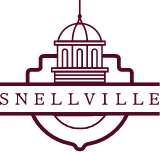 The change in law, which was contingent on a statewide referendum vote that passed in November 2024, implements a statewide floating homestead exemption designed to offset or reduce increases in taxable value to residential property with a valid homestead exemption. It is also referred to as a base-year or value offset exemption. House Bill 581 also enacts procedural changes in property tax administration and provides for a potential new local option sales tax.
The change in law, which was contingent on a statewide referendum vote that passed in November 2024, implements a statewide floating homestead exemption designed to offset or reduce increases in taxable value to residential property with a valid homestead exemption. It is also referred to as a base-year or value offset exemption. House Bill 581 also enacts procedural changes in property tax administration and provides for a potential new local option sales tax.
Entities that levy a property tax may opt out of the exemption after holding at least three public hearings and filing a resolution with the Secretary of State by March 1, 2025.
Public hearings for the City of Snellville to receive input from residents will be held at city hall on these dates:
- Monday, January 13 at 7:30 p.m.;
- Thursday, January 30 at 6:30 p.m.; and
- Monday, February 10 at 6:30 p.m.
More information about the public hearings can be found at snellville.org. More information about HB 581 can be found at gacities.com/Legislative-Session/Bill/HB581.
Calamity of Souls, by David Baldacci
![]() From Karen J. Harris, Stone Mountain: Jack Lee, a lawyer from Freeman County Va., has not done very much with his career at present. When a black couple is accused of brutally murdering a wealthy elderly white couple, he takes on the case and quickly realizes he is out of his depth. Enter a black female attorney, Desiree Dubose, whose life work is fighting for the rights of innocent primarily black people. This, however, depends upon whether or not the two lawyers from different realms can successfully work together. They must navigate racism in its covert and overt forms with many setbacks along the way. Woven within this tapestry are back stories of the Lee family. The most important sentence in the book is the following: “Real change is built on one person at a time doing something different. Something they might have been scared to do before.” This is a truism for the present time.
From Karen J. Harris, Stone Mountain: Jack Lee, a lawyer from Freeman County Va., has not done very much with his career at present. When a black couple is accused of brutally murdering a wealthy elderly white couple, he takes on the case and quickly realizes he is out of his depth. Enter a black female attorney, Desiree Dubose, whose life work is fighting for the rights of innocent primarily black people. This, however, depends upon whether or not the two lawyers from different realms can successfully work together. They must navigate racism in its covert and overt forms with many setbacks along the way. Woven within this tapestry are back stories of the Lee family. The most important sentence in the book is the following: “Real change is built on one person at a time doing something different. Something they might have been scared to do before.” This is a truism for the present time.
- An invitation: what books, restaurants, movies or web sites have you enjoyed recently? Send us your recent selection, along with a short paragraph (150 words) as to why you liked this, plus what you plan to visit or read next. Click here to send an email.
Carter Center seeks to advance peace and health
The Carter Center is a nongovernmental, not-for-profit organization established in Atlanta in 1982 by Jimmy Carter, former president of the United States, and his wife, Rosalynn, to advance peace and health worldwide. The center has helped to improve life for people in more than sixty-five countries. In partnership with Emory University, the center applies academic research to action-oriented projects aimed at advancing a broad-based concept of human rights and alleviating human suffering.
 In its first two decades of operation, the center gradually expanded its programming from an initial focus on conflict resolution and the promotion of peace to an array of activities defined by the center’s motto: “Waging Peace. Fighting Disease. Building Hope.” Focusing on two main action areas—peace and health—the center’s programs aim to give the world’s poorest people access to skills and knowledge that can improve their own lives and to help countries permanently sustain these solutions. Although the center has hosted many high-level conferences on important global issues, a requirement is that all such meetings result in action plans leading to results.
In its first two decades of operation, the center gradually expanded its programming from an initial focus on conflict resolution and the promotion of peace to an array of activities defined by the center’s motto: “Waging Peace. Fighting Disease. Building Hope.” Focusing on two main action areas—peace and health—the center’s programs aim to give the world’s poorest people access to skills and knowledge that can improve their own lives and to help countries permanently sustain these solutions. Although the center has hosted many high-level conferences on important global issues, a requirement is that all such meetings result in action plans leading to results.
In this way the center attained a track record of achievement during its first 25 years, citing among its milestones: the observation of sixty-seven elections in twenty-six countries; helping farmers double or triple grain production in fifteen African countries; creating avenues to peace in Bosnia and Herzegovina, Eritrea, Ethiopia, Haiti, Liberia, North Korea, Sudan, and Uganda; preventing unnecessary diseases in Latin America and Africa, including reducing cases of Guinea worm disease worldwide from 3.5 million in 1986 to fewer than 50,000 in 2007; and making significant headway in the effort to diminish the stigma against people with mental illness by raising public awareness.
Citing the center’s achievements in conflict resolution, human rights, election observation, and disease control, as well as President Carter’s negotiation of the Camp David accords between Egypt and Israel during his presidency, the Nobel Peace Prize Committee named him the 2002 Nobel Peace Laureate. In 1999 The Carter Center, along with Jimmy and Rosalynn Carter, received the inaugural Delta Prize for Global Understanding, an award administered by the University of Georgia.
The center’s peace programs work to advance human rights, strengthen democracy, promote economic development, and prevent and resolve conflict. The center is known as a pioneer in international election observation, having sent monitors since 1989 to report on election processes in emerging democracies throughout Latin America, Africa, and Asia. Also addressed are “second-generation democracy issues,” such as efforts to establish institutions to safeguard citizens’ rights, increasing the role of citizens in public policy formation, and discouraging corruption through government transparency and accountability. Focusing on conflicts within nations, staff use their expertise in mediation, negotiation, and peace building to help warring parties resolve their differences when other efforts fail.
Realizing that people’s faith in democracy and a country’s chances for peace are bolstered by adequate economic opportunity, the peace programs expanded in the mid-1990s to help countries craft comprehensive strategies for economic and social development, focusing on the need to include people from all sectors of society in strategy formation.
Situated on the same grounds as the center is the Jimmy Carter Library and Museum, a separate organization run by the National Archives Administration of the U.S. government. Here researchers can find documents and audiovisual materials from the Carter presidency (1977-81), and museum visitors can learn about the Georgia roots and political career of our nation’s 39th president.
- To view the Georgia Encyclopedia article online, go to https://www.georgiaencyclopedia.org
Where is this train station located?
Yes, today’s Mystery photo is a train station…but where? Try to figure it out and send your idea to ebrack@2gmail.com and include your hometown.
 George Graf of Palmyra, Va., recognized the home south of Lynn, N.C., in Polk County where Georgia poet Sidney Lanier died. Lake Lanier is named for him, primarily because of his rambling poem, The Song of the Chattahoochee. The photo was taken by Andy Brack of Charleston, S.C.
George Graf of Palmyra, Va., recognized the home south of Lynn, N.C., in Polk County where Georgia poet Sidney Lanier died. Lake Lanier is named for him, primarily because of his rambling poem, The Song of the Chattahoochee. The photo was taken by Andy Brack of Charleston, S.C.
Graf writes: “Poet, author, musician, soldier—Sidney Lanier was one of the south’s most prolific minstrels. Lanier only spent his twilight years in North Carolina. Sidney Clopton Lanier (1842-1881) was born in Macon, Ga., to Robert and Mary Jane Lanier on February 3, 1842. Lanier grew to adolescence in an environment where an appreciation for the fine arts was cultivated. He graduated from Oglethorpe University in 1860, and the following year enlisted with his brother Clifford in Company C, 2nd Battalion Georgia Infantry. In 1864 he was captured and held as a prisoner of war for four months in Maryland, during which time he contracted the debilitating tuberculosis that plagued him for the rest of his life.
“After the war, Lanier found little success in his professional pursuits. Having contracted an illness upon returning to Macon after his release in early 1865, he struggled through intermittent bouts of disease and a constant lack of interest in law, for which he was formally trained.
“Finally, knowing that illness would claim his life sooner rather than later, Lanier became an accomplished flutist, serving in the Peabody Symphony and Baltimore Orchestra, and lectured in English literature at The Johns Hopkins University. All the while, he published several books and poems. In 1881 he moved to Asheville, North Carolina, moving again to Lynn in Polk County soon thereafter. It was in Lynn where he wrote his last poems, and succumbed to his illness on September 7, 1881.
“While he pursued many interests, Lanier was foremost a poet, and the works for which he is best remembered deal with nature. “The Marshes of Glynn” and “Sunrise” were inspired by memories of his native Georgia. The house he occupied in Lynn still stands, along with a library that bears his name in nearby Tryon. Lanier was immortalized in stone within the Duke Chapel in Durham, as one of the three “Great Men of the South.””
Also recognizing the photo were Allan Peel of San Antonio, Tex. and Susan McBrayer of Sugar Hill.
- SHARE A MYSTERY PHOTO: If you have a photo that you believe will stump readers, send it along (but make sure to tell us what it is because it may stump us too!) Send to: ebrack2@gmail.com and mark it as a photo submission. Thanks.
Discussion on Jones Bridge Park set for Jan. 8
![]() Snellville Commerce Club meets Tuesday, January 7, at noon at the Community Room of Snellville City Hall. Speaker will be Segun Adeyina, state representative from District 110, which includes parts of Grayson, Snellville, Loganville and Lawrenceville.
Snellville Commerce Club meets Tuesday, January 7, at noon at the Community Room of Snellville City Hall. Speaker will be Segun Adeyina, state representative from District 110, which includes parts of Grayson, Snellville, Loganville and Lawrenceville.
Hear discussion about Jones Bridge Park at a public meeting at the Pinckneyville Park Community Center, 4650 Peachtree Boulevard, on January 8 at 2 p.m. Park officials will discuss the ongoing situation and plans for Jones Bridge Park. Interested residents are invited.
Suwanee Winter Farmers Market will be open on January 11 from 9 a.m. to 11 a.m. Located at Town Center on Main and DeLay Nature Park, this open-air market featuring local vendors runs twice monthly through April. Stop by and pick up fresh winter produce, such as lettuces, greens, potatoes, carrots and Brussels sprouts. And enjoy a selection of baked goods, canned items, meats and other local flavors.
2025 Personal Goals Workshop is scheduled for January 11 at 11 a.m. at the Norcross Branch of Gwinnett County Public Library. Learn how a structured approach to personal goal-setting can refine your values, cultivate self-love, and foster acceptance.
A Vienna New Year’s Celebration will be presented by the Gwinnett Symphony Orchestra and the Youth Orchestra (side by side) on January 12 at 7 p.m. at the Discovery Theatre in Lawrenceville. Come hear the music of Strauss and Mozart once played in Vienna. Get tickets at visitGwinnettSymphony.org.
Author Talk with Leara Rhodes will be January 13 at noon at the Peachtree Corners Branch of Gwinnett County Public Library. Join Author Leara Rhodes as she discusses her historical novel Spancil Hill. Books will be available for sale and signing
Mobile Career Lab: Climb aboard the Mobile Career Lab to receive assistance from a professional Human Resource Specialist in career planning, job readiness coaching, resume assistance, information about training opportunities, and more. The lab will be parked at the Lawrenceville Branch of Gwinnett County public library on January 16 from 9 a.m. to 2 p.m..
Detention Pond Maintenance Workshop: Attend this and learn maintenance guidelines for private property owners and Home Owners’ Associations. Learn how to care for detention ponds in your neighborhood. This will take place on January 16 at 6 p.m. at the Collins Hills Branch of Gwinnett County Public Library.
GwinnettForum is provided to you at no charge every Tuesday and Friday.
Meet our team
- Editor and publisher: Elliott Brack, 770-840-1003
- Contributing columnist: Jack Bernard
- Contributing columnist: George Wilson
More
- Mailing address: P.O. Box 1365, Norcross, Ga. 30091
- Work with us: If you would like to learn about how to be an underwriter to support the publication of GwinnettForum as a community resource for news and commentary, please contact us today.
Subscriptions to GwinnettForum are free.
- Click to subscribe.
- Unsubscribe. We hope you’ll keep receiving the great news and information from GwinnettForum, but if you need to unsubscribe, go to this page and unsubscribe in the appropriate box.
- © 2025, Gwinnett Forum.com. Gwinnett Forum is an online community commentary for exploring pragmatic and sensible social, political and economic approaches to improve life in Gwinnett County, Ga. USA.





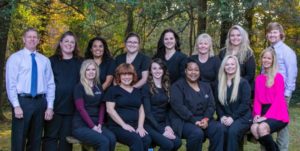
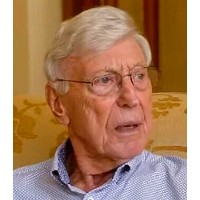


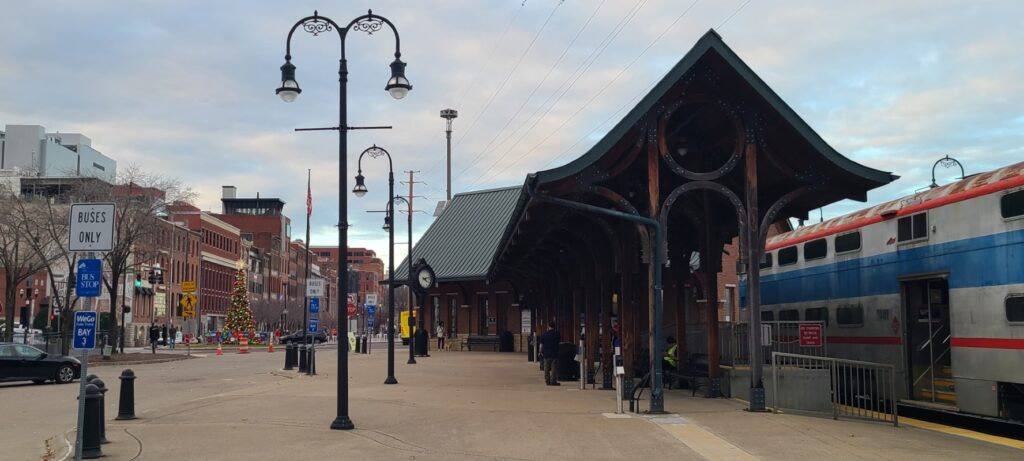







Follow Us